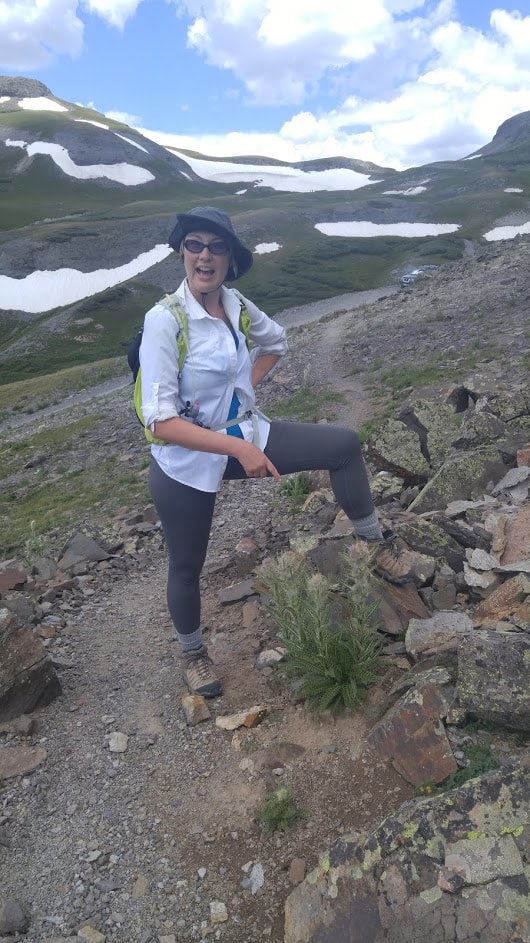

 |
Bonnie J. Clark, Ph.D."Finding Solace in the Soil: An Archaeology of Gardens and Gardeners at Amache" During World War II, Americans of Japanese ancestry were removed from their homes and placed into confinement camps throughout the western US. This presentation overviews the methods and results of six seasons of landscape archaeology at one of those sites — Amache — located in southeastern Colorado. The site contains an incredibly well-preserved record of how the people incarcerated there transformed a hostile landscape through strategy and skill. By integrating a program of historical research, community engagement, and intensive garden archaeology, the University of Denver Amache project is expanding the view of what internee gardens are, how they were created, and their import, both to those who made them and us today. Bonnie J. Clark is professor and curator for archaeology in the University of Denver’s Anthropology Department. Since 2005 her primary research focus has been the DU Amache Project, a collaborative endeavor committed to preserving, researching, and interpreting the tangible remains of Amache, the World War II Japanese American incarceration camp in Colorado. She is author of Finding Solace in the Soil, coeditor of Archaeological Landscapes on the High Plains and coauthor of Denver: An Archaeological History. |
 |
Jennifer Ackerfield, Ph.D.“History of the Herbaria at Denver Botanic Gardens” When most people think of plants at Denver Botanic Gardens, they picture the living collections in the gardens. However, there are many more plants at the Gardens, only preserved as specimens in the herbarium. In fact, the Gardens has two herbaria – the Kathryn Kalmbach Herbarium of Vascular Plants and the Sam Mitchel Herbarium of Fungi. Both herbaria contain valuable historic as well as recent collections of plants and fungi from the southern Rocky Mountains. Join Head Curator of Natural History Collections, Jennifer Ackerfield, as she discusses the history of these collections and the importance they serve to the scientific community as well as general public. Dr. Ackerfield is the author of Flora of Colorado, and here is her personal statement: As the Head Curator of Natural History Collections and the Associate Director of Biodiversity Research, I coordinate the growth, improvement, and support of Denver Botanic Gardens’ biodiversity research efforts. Natural history collections are moments in time, and as such they represent invaluable sources of material for biodiversity, ecology, evolutionary, systematic, and climatic studies. I coordinate and lead fieldwork to floristically interesting or under-collected areas to document and catalog the rich biodiversity in Colorado and the Southern Rocky Mountains. These collections also help build upon the "Flora of Colorado," the most current and comprehensive guide to the flora of the region, which I authored in 2015. In addition, I develop research projects which complement and enhance the existing research at the Gardens as well as incorporate natural history collections. I am currently involved in research I term “a prickly puzzle,” which aims to identify the evolutionary, biogeographical and ecological patterns that underlie diversification, speciation, and trait evolution in the thistles (Cirsium) of North America. Lastly, I provide outreach for the Gardens by actively connecting members of the community to biodiversity and natural history collections through citizen science campaigns, speaking engagements and workshops. |
 |
Julie Morris, Ph.D."Taking Action for Pollinators" Dr Julie Morris will be talking to us about pollinators, gardens, and her work with the People and Pollinator Action Network of Colorado. Dr. Julie Morris is a Teaching Associate Professor in the Department of Biological Sciences at the University of Denver. Her research focuses on improving student engagement and learning outcomes in the introductory and non-major's biology courses. She was trained in the fields of plant systematics and evolutionary biology, but she is currently most interested in biology education and outreach. Her research focuses on strategies to improve engagement and learning effectiveness in large introductory and non-major’s biology courses. Dr. Morris is also actively involved in sustainability initiatives on campus, manages DU’s community garden, and advises two undergraduate student organizations -the Pioneers for Pollinators and the DU Botanical Society. |